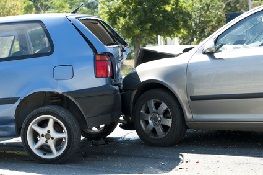 Last week we talked about how to fight a surcharge imposed by your Massachusetts car insurance company following an accident. In that article, we mentioned the state’s standards of fault, and how if your accident involved any of the details outlined in those standards, you’re likely to be considered responsible for the crash and see increased insurance rates. So what are those standards?
Last week we talked about how to fight a surcharge imposed by your Massachusetts car insurance company following an accident. In that article, we mentioned the state’s standards of fault, and how if your accident involved any of the details outlined in those standards, you’re likely to be considered responsible for the crash and see increased insurance rates. So what are those standards?
The standards of fault include about 20 situations in which Bay State residents are automatically assumed to be responsible for causing an accident. The only ways that you could keep insurance premiums down after getting into an accident that involved any of the circumstances described in the fault standards would be if you went to the appeals board and convinced them that the reality was otherwise, or if you just have a very forgiving insurer.
The situations included in the standards of fault appear to have been cut by nearly a third since they were first made law. Originally, there were 31 total situations, but that has been pared down to 19.
Here are some of the remaining crash-related instances where your presumption of innocence is thrown at the window:
—You hit a parked car.
—You rear-ended another car.
—You didn’t signal before turning or changing lanes and hit another car in the process.
—You crashed into another car while passing another vehicle or while getting out of your lane to pass another vehicle.
—You crashed into another car while you were driving on the wrong side of the road.
—You hit another car while backing up.
—You crashed into another car while exiting a parking space, parking lot, alley, or driveway.
—Your door was hit while you had it open.
—You left your car unattended and it rolled away, hitting another car.
—You got into an accident while failing to pull over for an emergency vehicle.
To see the rest of the standards of fault, check out the resource page on the state of Massachusetts’s website.
Of course, not all of these scenarios will lead to a surcharge 100 percent of the time. In fact, the majority of people who go to appeal surcharges end up getting them overturned, according to a report from the New England Center for Investigative Reporting. That report cited Insurance Board of Appeals data showing that they find a whopping 70 percent of drivers who appeal their cases are actually less than 50 percent responsible for the crash. Those are pretty good odds for Bay State drivers.